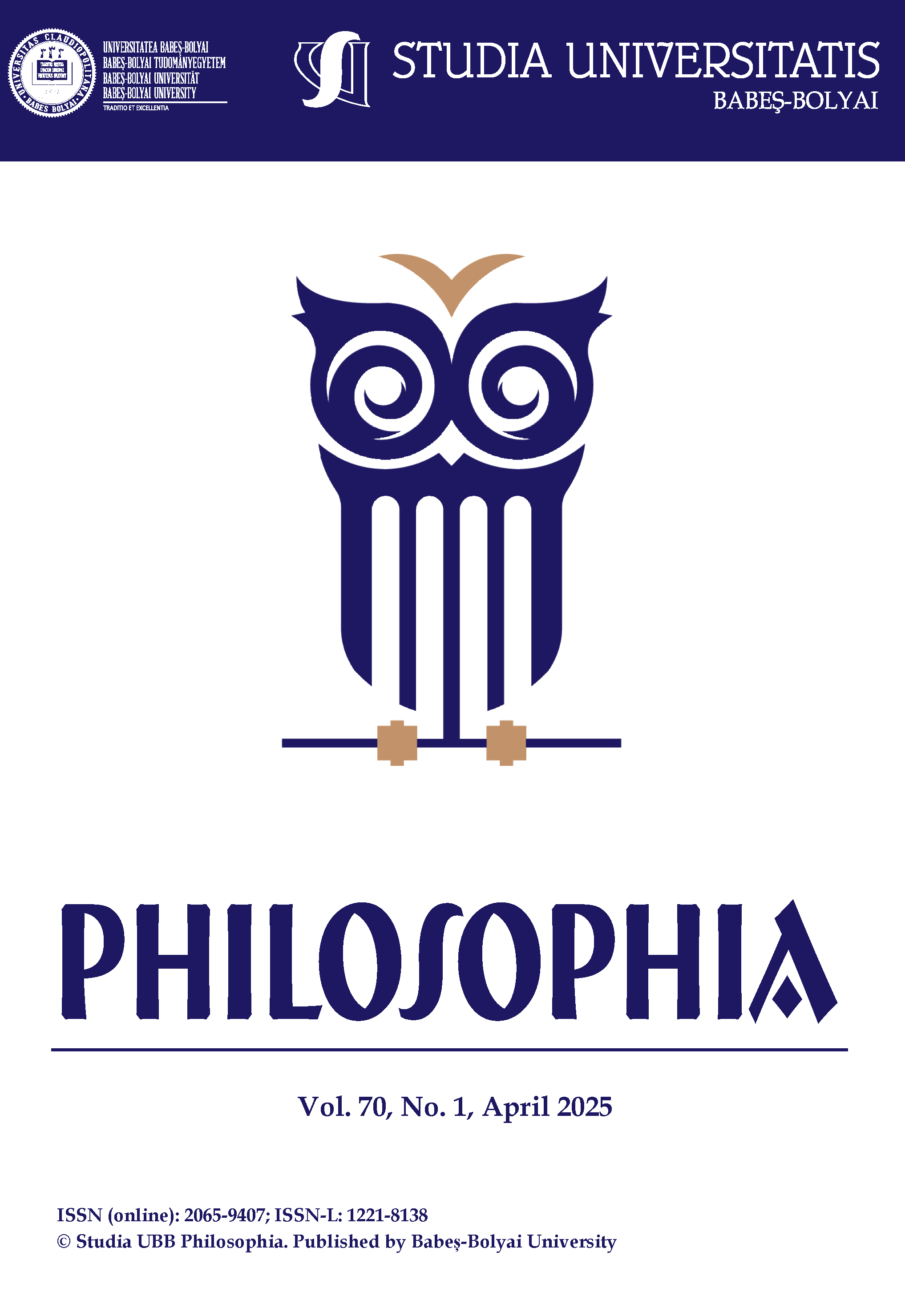Paul Ricœur’s Recovery of Affectivity: Feeling at the Crossroads of Carnal Imagination and the Corporeal Condition
DOI:
https://doi.org/10.24193/subbphil.2025.1.03Keywords:
affectivity, imagination, embodiment, will, decisionAbstract
This article examines Paul Ricœur’s conception of the relationship between the affective dimension of experience and imagination’s reproductive force. Specifically, it focuses on Ricœur’s recovery of the affective aspects of human being’s incarnate existence and imagination modeled on representation of absent things based on our previous sensory experiences of the world, as dimensions playing a fundamental role in the generation of actions. Regarding Ricœur’s early phenomenological analysis of the embodied nature of affectivity and imagination, developed in his work entitled Freedom and Nature: The Voluntary and the Involuntary (1950/1960), I will first discuss his understanding of the unity of feeling, imagining, and thinking. More precisely, affectivity, imagination, and thought are mediated through the body’s spontaneous experience as situated in time and space and as exercising a particular point of view about the world. Stemming from Ricœur’s rejection of the naturalistic explanation of volition, these reflections will lead us to consider affectivity and imagination as inseparable from the corporeal limiting factors shaping our decisions. Therefore, the second part of this article will consider the affective and the imaginative components of our experience in the affirming spontaneity of the body in decision-making as involving the necessity to satisfy needs, the apprehension of motives, and the evaluation of objects in the world. The analysis of Ricœur’s phenomenological account of affectivity and imagination will be enriched through the consideration of the resonances of his early ideas in his theory of imagination as presented in his recently published work Lectures on Imagination (1975/2024). Subjected to the rhythm of passivity and activity, closeness and openness, vulnerability and capability, affectivity and imagination configure the framework for our projects and actions, allowing us to foresee future possibilities.
Downloads
Published
How to Cite
Issue
Section
License
Copyright (c) 2025 Studia Universitatis Babeș-Bolyai Philosophia

This work is licensed under a Creative Commons Attribution-NonCommercial-NoDerivatives 4.0 International License.



